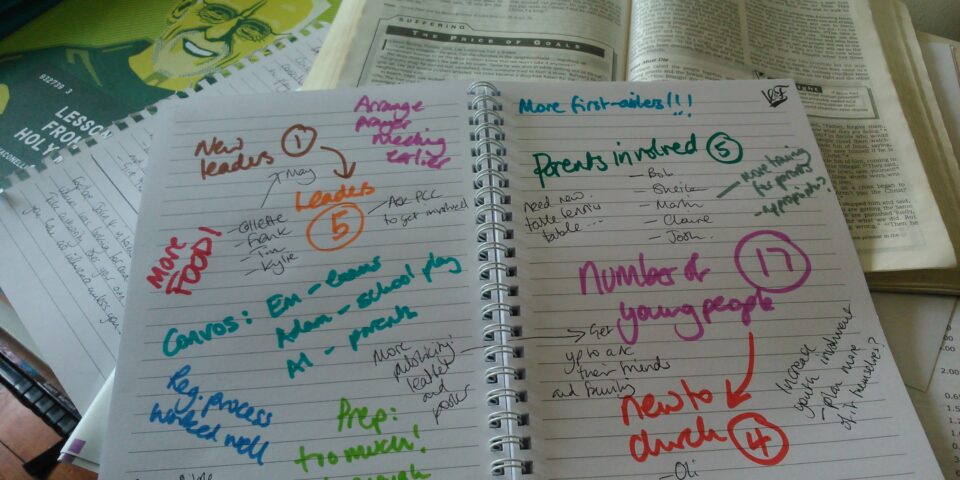Last Saturday I was on an interview panel for a new youth worker position up in the Willesden Area of our grand Diocese. I do this quite a lot, in fact. I’m beginning to wonder if there are many youth or children’s workers left who haven’t been interviewed by me at some point! As a natural consequence of this (we normally interview four for each job) there’s a lot of people out there who didn’t get the job who I have to hope don’t blame me!
I’ve been in many really good interviews, a few shockers and one or two horror shows but generally we’ve been able to make good appointments. Whenever I interview I’m always on the lookout for someone who shows me that they can think and reflect about their role. It’s too easy to be the pragmatist who can make things good enough in the short term but I want someone who can develop and refine ideas over time and reflect theologically about the best way to work and not just where the short term gains are to be found.
So we end up asking follow-up questions to probe this a bit: when they tell us about an event they’ve been involved with, we ask how they might improve it for next time. We might even ask them if they can explain using some theology why their event was good. I know this sounds harsh but good youth and children’s workers really need to think this way and it’s really not as complicated as it sounds.
A simple process of reflection would look something like this:
- An action or experience – this is the starting point. This is the event you led or an experience that happened to you in your ministry.
- Recall and reflect – here you need to be honest with yourself. What was the event really like? What was good? What was bad? Start also to reflect on why you think this.
- Analyse and theorise – now take your reflections and go deeper. Try to draw on external resources that can help you to analyse. What have you read that has insights that can help with this, are there any theological resources that could help?
- Next steps – this stage helps you draw some conclusions how you are going to run your event again in the light of this thinking. How will you do things differently in the light of your thinking and reading?
- Undertake next action – finally you go again, taking your insights into the next event.
I know this all sounds really simple but if you can get into the habit of doing this then you’re in a really strong place. And one thing I’m certain of is that the best youth and children’s workers do this – which is why if I ever interview you, I’ll be looking to see that you can too.
Sam Donoghue is Head of Children’s and Youth Support for the Diocese of London. He bakes bread and rides bikes.
